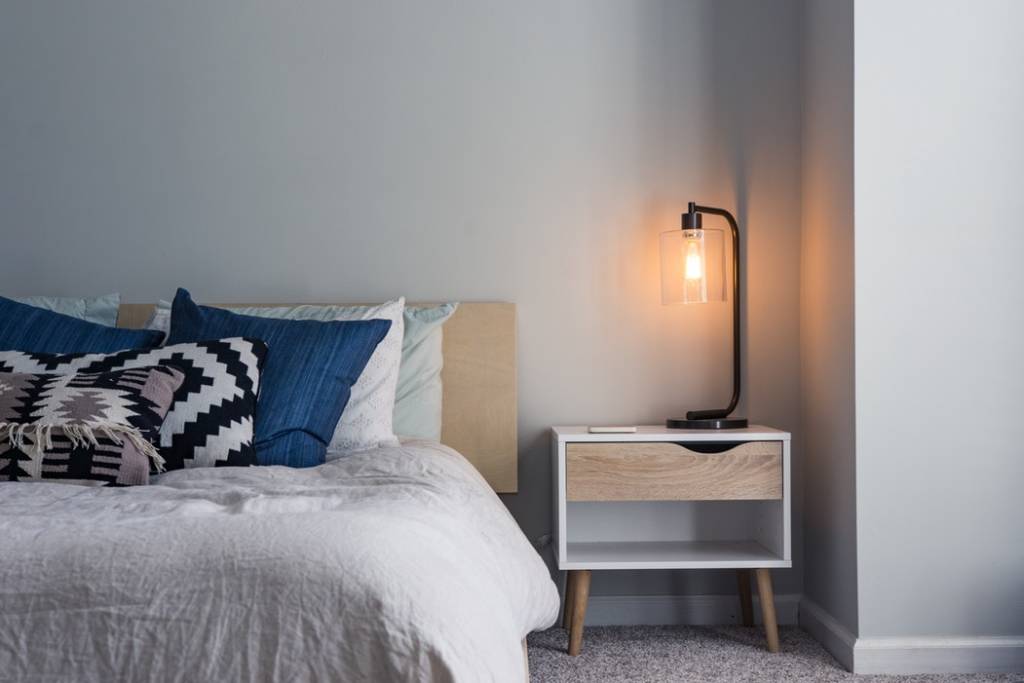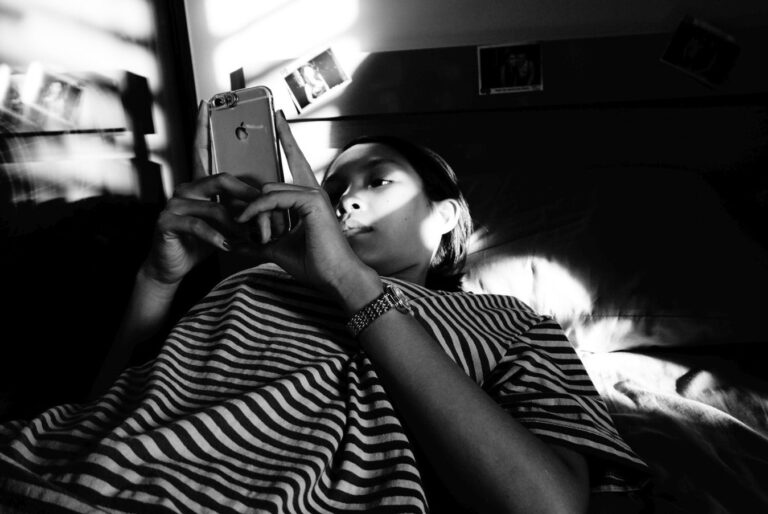What is Sleep Texting?
Sleep texting is exactly what it sounds like. It’s is a phenomenon when people send or reply to text messages – you guessed it, in their sleep. Sleep texting has arisen and has become increasingly more common in the last decade, with the advance and the increasing prevalence of smartphones in our lives. If you’ve ever woken up to find a text you sent to a friend you have no memory of writing, you know what it is.
How is it possible to text someone in your sleep? If this scenario seems wild to you, that’s a sign that texting is just not an integral part of your life as it is for many people, and your relationship with your phone is not as automatic.
Sleep texting is not that different from other parasomnias – a kind of sleep disorders when a person performs movements and behaviours during their sleep that they might perform automatically during the day but that shouldn’t happen during sleep. The more known parasomnias include sleepwalking, sleep talking, sleep eating, groaning, night terrors, teeth grinding, jaw clenching – and occasionally more dangerous ones like sleep driving. All these have been around for a while, and as technology adds new dimensions and new regular behaviours to our lives, things like sleep texting (and even sleep shopping) are becoming common because texting and shopping online are just regular things we do during the day.
The reason that parasomnias in general happen is that while you might be sleeping, parts of your brain may still be awake, so you’re engaging in the same behaviors you engage while you’re awake.
Sleep Texting and Smartphone Use
 Using technology in your sleep is not entirely new either. What seems to be the first documented case of sleep emailing took place nearly 10 years ago and was reported in a Journal of Sleep Medicine. In that case, the patient reported sleep emailing after taking an increased dose of sleep medication.
Using technology in your sleep is not entirely new either. What seems to be the first documented case of sleep emailing took place nearly 10 years ago and was reported in a Journal of Sleep Medicine. In that case, the patient reported sleep emailing after taking an increased dose of sleep medication.
But in a matter of 10 years, sleep texting has turned from sensational to a pretty common phenomenon. Researchers from the Villanova University recently conducted a study surveying sleeping habits of college students. In an article published in the Journal of American College Health, they report that as much as 25% of college students surveyed report sleep texting, and the majority of them (72%) do not remember doing so afterwards.
The rise of sleep texting is of course not surprising given the prevalence of phones in our lives. According to Deloitte’s 2018 Global Mobile Consumer Survey, 85% of Americans now own a smartphone, and they check it on average 52 times a day (that’s up from 47 times the year before). In addition, 60% of the respondents aged 18-to-34-year-olds admitted they’re hooked on their devices.
For instance, one of the respondents in the Villanova college students study commented that she resorted to wearing mittens to bed to prevent sleep texting, because “moving the phone from being in my bed to next to the bed is not an option, I have to keep my phone with me.”
Of course with many of us attached to our phones for the large part of the day and responding to each notification as soon as it arrives, it is not surprising that our phones have become an extension of ourselves like our arms and legs. As a consequence, our reaction to the sound of a text notification on our phone has become automatic: we grab the phone and immediately begin to text back.
As a matter of fact, people who sleep text usually do so in response to the sound of a text notification on their phone. It’s quite rare for people to actually initiate a text conversation in their sleep although it does happen too.
Also, as with sleep talking, most of the time the texts people send in their sleep are a total gibberish, but occasionally they can have logical conversations in their sleep.
Of course, unlike sleep talking where you’re embarrassing yourself in front of only one or at most a couple of people who know you well, sleep texting is an opportunity to embarrass yourself in front of a much wider audience. Just imagine what would happen if sleep texting turned into sleep tweeting!
Causes of Sleep Texting
 While the immediate danger of sleep texting is embarrassing yourself in front of your friends, relatives and co-workers, it is possibly a sign of a bigger problem, your inability to relax and get into a deep sleep.
While the immediate danger of sleep texting is embarrassing yourself in front of your friends, relatives and co-workers, it is possibly a sign of a bigger problem, your inability to relax and get into a deep sleep.
Stress, poor sleep quality and excess daytime activity are all factors that affect your sleep quality and may all be possible causes of sleep texting. The Villanova sleep-texting study specifically linked students’ sleep-texting to the quality of sleep and the level of exhaustion and stress the students had during the day. It makes sense, of course. If you’re stressed, or overly active during the day, and don’t take time to unwind, you’re less likely to be able to relax and fall into deep sleep come nighttime.
Sleep deprivation is another factor that makes you more likely to sleep text. If you’re already sleep deprived, it might be harder for you to fall into deep sleep, and you’re more likely to respond to outside auditory stimuli like a phone notification.
Parasomnias may also be hereditary, even if it’s not necessarily sleep texting. So if your mom used to sleepwalk, you’re more likely to exhibit parasomnias, and if you’re used to regularly text during the day and have your smartphone nearby at night, this might manifest as sleep texting.
Other factors that may contribute to parasomnias in general and sleep texting in particulal are the use of certain medications, alcohol and sleep breathing disorders, such as obstructive sleep apnea.
How to Prevent Sleep Texting
 Luckily, sleep texting is a highly preventable disorder.
Luckily, sleep texting is a highly preventable disorder.
The first and most logical thing to do to ensure it does not happen is to not keep your phone in your bedroom, or to turn it off entirely. But that might not be possible for everybody. For instance you might have to keep your phone on and close to you because of a work commitment or a family circumstance. Or maybe you’re legitimately using an app that helps you fall asleep or tracks your sleep, or listening to a guided sleep meditation on your phone. In that case the solution is to simply put your phone somewhere you can’t reach it easily. There is no guarantee of course that you won’t get up during your sleep and walk to get your phone, but it will make it a lot less harder and therefore less likely for you to do so.
Even better, put in a Do Not Disturb mode. This will allow only the most important phone calls to come in while silencing all other notifications.
Remember that the effects of sleep deprivation are a lot more far reaching than a few embarrassing text messages. Mood swings, poor concentration and longer term effects such as hormonal changes, compromised immunity and poor memory are some of the longer term effects of not getting enough sleep. Chronic sleep deprivation also makes you more susceptible to health issues such as high blood pressure, risk of heart disease, depression.
Make sure to get enough exercise, eat right and make sure you have the right environment in your bedroom, the right mattress for your body, the right pillow and other things to help you sleep soundly.
Avoiding screen time before bed will also make a significant difference. Exposure to blue light from screens at night time suppresses the production of melatonin, a hormone produced by the pineal gland that regulates our sleep-wake cycles. Melatonin rises when it’s darker outside signaling our body that it’s time to relax. When melatonin production is suppressed by exposure to blue light our brains and bodies think they should be awake and alert.
Finally, improve your screen habits during the day. Are you sure you really need to respond to every beep and ring of your phone as soon as the notification arrives? If you get into the habit of not responding to every text immediately, it is less likely to become an impulsive behaviour that you will engage in even when you’re sleeping.
While sleep-texting in itself is not necessarily a sign of phone addiction (especially since it’s not always clear what we mean by phone addiction) it might be a sign to some people that they might want to cut back on their phone use, take back control and make it less of an impulsive behaviour. If you’re truly serious about being more conscious about your phone use and improving your overall health and wellbeing, turn your phone grayscale, delete or limit particularly addictive apps from your phone, and follow other excellent tips from Tristan Harris, the founder of the Time Well Spent movement, to take control of your relationship with your phone.
By claiming back deep sleep, you will be doing your body and brain a favor that reaches far beyond avoiding a couple of embarrassing text messages.

